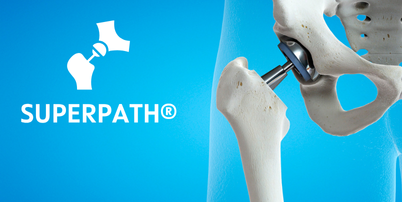Kidney transplantation is a highly effective modern treatment for end-stage renal disease. In Germany, this complex medical service is organized at a very high standard, benefiting from the country’s advanced healthcare infrastructure, strict quality regulations, and experienced specialists. Patients with severe kidney disorders have access to high-quality medical care, including kidney transplantation and individualized post-operative rehabilitation.
Indications for Kidney Transplantation
A kidney transplant becomes necessary when a patient reaches the terminal stage of chronic kidney failure — a condition in which the kidneys are no longer able to perform their vital functions. At this point, the patient typically relies on dialysis or requires a replacement organ to survive. Common indications for kidney transplantation include:
-
Chronic kidney disease (CKD) caused by long-term conditions such as diabetes or hypertension.
-
Polycystic kidney disease, a hereditary disorder that leads to kidney failure.
-
Glomerulonephritis, a group of inflammatory kidney diseases that damage the filtering units of the kidneys.
-
Acute kidney failure that does not respond to conservative treatments.
The decision to proceed with transplantation is made by a multidisciplinary medical team following a thorough evaluation of the patient’s condition. This process is designed to maximize treatment success and ensure long-term graft survival.
Kidney Transplantation Costs in Germany: What’s Included?
The cost of a kidney transplant in Germany depends on the complexity of the case, the chosen hospital, and individual patient needs. On average, the total cost begins at €65,000. This includes:
-
Comprehensive diagnostics and preoperative assessments.
-
The transplantation surgery itself.
-
Post-surgical medication, including immunosuppressive therapy.
-
Hospitalization, follow-up care, and initial rehabilitation.
While this cost may seem high, it reflects the exceptional quality of care, access to cutting-edge treatments, and the long-term effectiveness of kidney transplants performed in German clinics.
How Kidney Transplantation Works for International Patients
International patients traveling to Germany for a kidney transplant must undergo a structured and carefully coordinated process:
-
Initial consultation and diagnostics: Patients receive an extensive medical evaluation including blood tests, imaging (such as ultrasound or CT), and consultations with nephrologists and transplant surgeons.
-
Surgical procedure: The transplant involves connecting the donor kidney to the patient’s blood vessels and urinary system. In most cases, the patient’s own kidneys are not removed to avoid additional surgical risks.
-
Postoperative care: After surgery, the patient is closely monitored to prevent complications, ensure proper kidney function, and adjust immunosuppressive medication.
-
Rehabilitation: Once discharged, patients begin a rehabilitation phase focused on physical recovery, medication adherence, and lifestyle adaptation to protect the new kidney.
Throughout this process, international patients are supported by care coordinators and interpreters to reduce stress and ensure clear communication with the medical team.
Life After Transplantation: How to Live With a New Kidney
Living with a transplanted kidney requires commitment and ongoing medical supervision. The main pillars of long-term success after transplantation include:
-
Immunosuppressive therapy: To prevent the immune system from attacking the transplanted kidney, patients must take immunosuppressive medications for life. These drugs require regular adjustment and monitoring.
-
Routine medical checkups: Frequent follow-up visits, blood tests, and kidney function monitoring are essential to detect early signs of rejection or complications.
-
Healthy lifestyle and nutrition: A kidney-friendly diet, adequate hydration, and moderate physical activity contribute significantly to long-term transplant success and overall well-being.
Although the post-transplant lifestyle requires discipline, most patients experience a significant improvement in quality of life, regain independence, and return to normal daily activities.
Disclaimer:
This article is intended for general informational purposes only and does not substitute professional medical advice. Always consult a qualified physician for diagnosis and treatment decisions. AskGermanDoc connects patients with certified German specialists for medical second opinions and does not provide medical treatment directly.
Sources:
-
Deutsche Stiftung Organtransplantation (DSO): www.dso.de
-
KDIGO Clinical Practice Guidelines – Kidney Transplantation
-
European Renal Association – ERA Guidelines
-
Federal Centre for Health Education (BZgA), Germany
-
University Hospitals in Germany offering transplant services (Charité, Heidelberg, LMU Klinikum)



